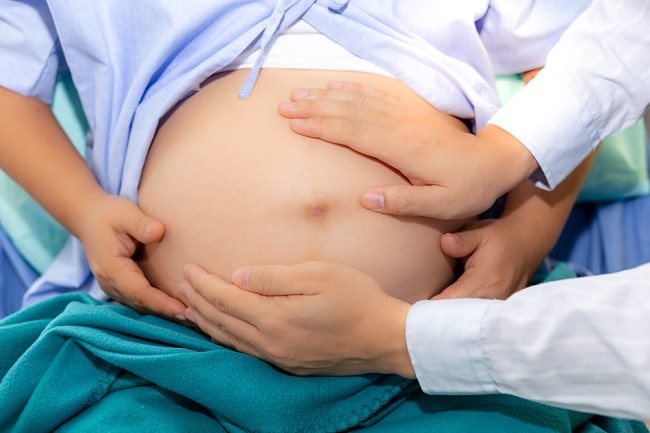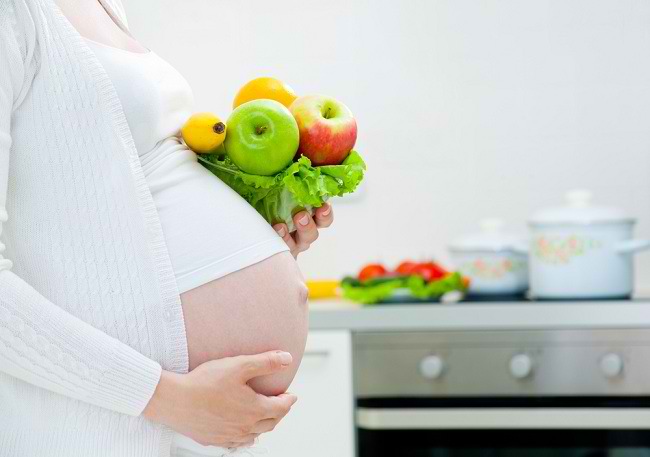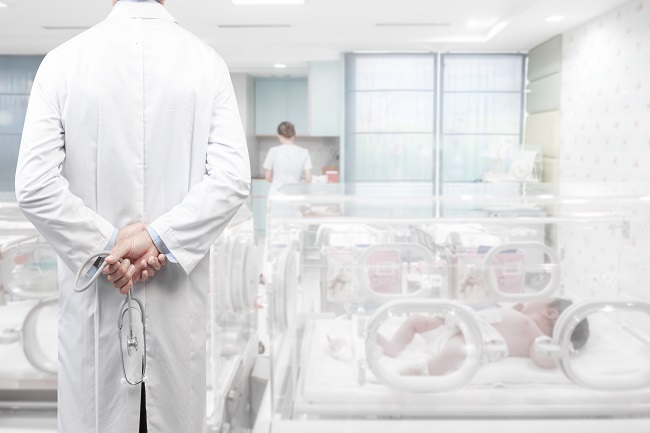Mothers who are pregnant with more than one fetus or pregnant with twins are more at risk of complications during pregnancy. Some of these twin pregnancy complications can have an impact on the condition of the pregnant mother and fetus. Pregnant women, let's identify what are the complications when pregnant with twins that you need to watch out for.
Most mothers who are pregnant with twins can have a healthy pregnancy and are not disturbed so that they can give birth to twins smoothly. However, not a few pregnant women with twins experience complications during pregnancy.

Some of these complications are mild, some have the potential to endanger the lives of pregnant women and their twin fetuses.
Complications of Twin Pregnancy in Babies
The following are some complications of twin pregnancy that can occur in the fetus:
1. Born prematurely
One of the complications of twin pregnancy that is quite common in the fetus is premature birth or the baby is born when the gestational age is less than 37 weeks.
The more the number of fetuses conceived, the higher the risk of the fetus to be born prematurely. On average, twins will be born at 36 weeks, triplets at 32 weeks, quadruplets at 30 weeks, and quintuplets at 29 weeks.
2. Congenital diseases (congenital abnormalities)
Congenital diseases often occur in babies born prematurely, including twins who were born earlier than the estimated time of birth.
Several types of congenital diseases that quite a lot of twins experience are congenital heart disease, eye disorders (ROP), hearing problems, breathing problems, and growth and development disorders.
3. Impaired growth in the uterus (IUGR)
In the first few months of pregnancy, the growth rate of twins is almost the same as that of singleton pregnancies. However, under certain conditions, the growth and development of twins can slow down.
Slowed growth in the fetus can cause a condition called intrauterine growth restriction (IUGR). In twins, IUGR occurs at 30–32 weeks of gestation. Whereas in triplets, IUGR can begin to occur at 27-28 weeks of gestation.
There are several factors that are thought to cause IUGR in the fetus, for example, the placenta is not able to provide nutrients and oxygen to the twin fetuses, so that their growth and development is problematic.
4. Miscarriage
Vanishing twin syndrome (VTS) is a condition when one or more fetuses in the womb disappear or miscarry. VTS often occurs when multiple pregnancies are in the first trimester and is sometimes accompanied by bleeding. The risk of miscarriage is also higher in the next trimester.
5. Twin-to-twin transfusion syndrome (TTTS)
About 10% of twins who share a placenta develop a rare but dangerous condition called twin-to-twin transfusion syndrome (TTTS). TTTS occurs when one of the twins gets more blood supply than the other fetus.
Fetuses that receive less blood can become anemic and have a smaller shape and weight. While the fetus that receives too much blood will burden the heart's work. If left untreated, TTTS can result in heart failure or death in one or both fetuses.
6. Amniotic fluid volume is not normal
Disturbance in the volume or amount of amniotic fluid is a common complication of multiple pregnancy, especially in twin fetuses who share a placenta.
7. Twisted umbilical cord
In twin fetuses who share the same amniotic sac, there is a risk of entanglement in the umbilical cord. If this condition occurs, the fetus may need frequent monitoring when the content is in the third trimester.
Complications of Twin Pregnancy in Pregnant Women
Twin pregnancies are not only risky for the baby, but also for the expectant mother. Common complaints that are often experienced in singleton pregnancies, such as: morning sickness, constipation, swollen ankles, varicose veins, backache, and fatigue, will be more common and more severe in multiple pregnancies.
This may happen because carrying more than one baby makes the body of pregnant women have to work harder. The following are some of the complications of twin pregnancy that can occur in pregnant women:
1. High blood pressure
The risk of developing high blood pressure during pregnancy can more than double if the mother is carrying twins. This condition also often develops earlier and tends to be more severe in women who are pregnant with twins.
If treated immediately, high blood pressure during pregnancy can be a serious threat to the health of pregnant women, especially if it develops into preeclampsia.
2. Preeclampsia
Preeclampsia is a condition when blood pressure rises accompanied by the presence of protein in the urine of pregnant women. This condition is generally characterized by severe headaches, visual disturbances, and rapid weight gain.
The risk of preeclampsia is two times greater in twin pregnancies. If not treated, preeclampsia can develop into eclampsia which can be life-threatening for the fetus and pregnant women.
3. Gestational diabetes
Twin pregnancies also cause pregnant women to be more at risk of developing gestational diabetes. This condition can usually be treated with dietary and lifestyle changes in pregnant women.
4. Anemia
All pregnant women can experience anemia, but this condition is more common in pregnant women carrying more than one fetus. To prevent this, pregnant women are recommended to meet the intake of iron as much as 27 mg every day or according to doctor's advice.
5. Hyperemesis gravidarum
Morning sickness Severe cases are more likely to occur in pregnant women carrying twins. This condition called hyperemesis gravidarum can even cause weight loss in pregnant women to require hospitalization.
6. Bleeding
Another complication of twin pregnancy that can be experienced by pregnant women is bleeding before or during delivery. The risk of bleeding is even higher in multiple pregnancies.
7. Placental abruption
Placental abruption is more at risk for women who are pregnant with twins than women who are pregnant with only one fetus. This condition is thought to be associated with an increased risk of preeclampsia in mothers who are pregnant with twins. Placental abruption is most common in the third trimester of pregnancy.
In addition to some of the complications of twin pregnancy mentioned above, pregnant women with twins are also more at risk of giving birth by caesarean section, especially if the fetus is in a breech position or if the mother is carrying more than two babies.
If pregnant women are pregnant with twins, it is advisable to undergo more frequent gynecological examinations to the obstetrician according to the schedule recommended by the doctor. This is important so that doctors can detect twin pregnancy complications more quickly and provide treatment as early as possible.









